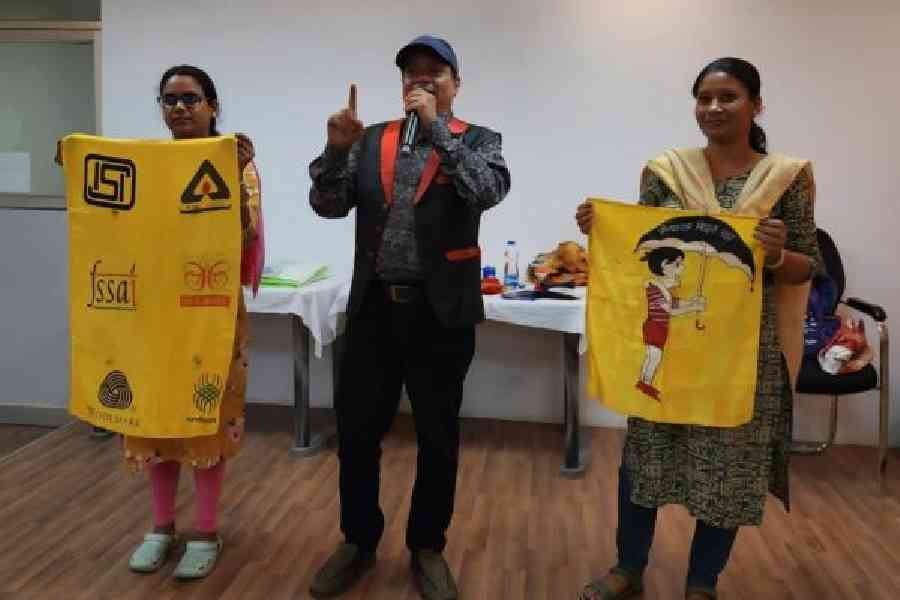Your bank calls and says a credit card has arrived in your name, and that you are to get your Pan and Aadhaar cards to claim it. You pick it up, but since you didn’t really ask for one, you don’t use it. But the bank starts charging you service tax for it.
When you question the bank, they say you accepted the terms and conditions when you accepted the card. You try to surrender it, but they don’t want to let you. You have been a victim of forced selling.
“This is a common complaint these days,” said Karabi Biswas consumer welfare officer. “What the banks don’t say clearly is that a card doesn’t “arrive” unless it is applied for. But by asking you to present your documents, they make it seem like you had indeed applied for it, and then you’re trapped paying tax for something you never wanted and never use.”
As a solution, of course, you can lodge a complaint with the consumer affairs department. Or better still, be aware of your rights so you do not even fall into such traps in the first place.
An awareness camp on such issues was held at Vidyasagar Bhavan hall at Karunamoyee recently, conducted by the office of Sumanta Ghosh, assistant director, consumer affairs and fair business practices, Salt Lake regional office. This office, at Subhanno building in DF Block caters to plaintiffs from areas under Bidhannagar Municipal Corporation, New Town, and Rajarhat.
Buyers beware
A lady in the audience said she had taken an education loan for her son of Rs 16 lakh, that they would be encashing over a period. “For starters, we withdrew only Rs 5 lakh, but the bank has started charging interest on the entire Rs 16 lakh. We had asked the bank about this clause while signing the dotted lin,e but the agent had said it’s just a formality and that they don’t actually charge on the entire sum from the beginning. And now we’re stuck!”
To this, Biswas asked consumers to never trust anything unless in writing.
There was also a magic show where magician Rajib Roychowdhury of Patuli taught lessons on the subject through tricks. He asked audience members to put hands into a bag, but when they did so, showed them their mistake. “You did it without any checking, questioning or verifying. This is how companies take you for granted,” he said, asking another lady for Rs 20, promising that it convert to Rs 500. But it became a white paper. “This is how people fall for cons,” Roychowdhury said, magically making posters appear with quality symbols they should search for before buying items. It had ISI marks for electronics, FSSAI for packaged food items, silkmark, woolmark, handloom mark etc.
“Periodical awareness camps are important to reach out to different strata of society so they are not fooled by companies,” said Palash Mondal, deputy assistant director, consumer affairs and fair business practice, Salt Lake regional office.
There was also a presentation by consumer welfare officer Suman Biswas, where he explained the six rights of consumers enshrined in the Consumer Protection Act 2019 — the right to safety (to be protected against the marketing of goods and services which are hazardous), to be informed (about the quality, quantity, price, purity etc of items), to choose (to have access to a variety of goods or services at competitive prices), to be heard (and be assured that his interest will receive due consideration at appropriate forums), to seek redressal (against unfair trade practice) and to consumer education.
About the Food Safety Act, he said that food packets must have allergen symbols if they use common allergens like peanut and gluten. Fortified foods such as iodised salt and rice fortified with vitamin B12 also need to be labeled. “If you find a restaurant dirty, you can ask to see their FSSAI (Food Safety and Standards Authority of India) licence. “Technically, even hawkers should have these. The consumer then makes an informed decision about eating there based on its food safety compliance,” Suman Biswas said.
The officers asked consumers to always retain bills of transaction, and cited recent cases where plaintiffs had won compensation from erring companies. “A Central Asia-based airline had cancelled a flight, and the passengers faced major harassment. After we followed up, they complied,” said Karabi Biswas. “Another educational institute in Rajasthan was refusing to return lakhs of rupees of deposit money to a student for over two years. Again, they toed the line after we intervened,” she said.











